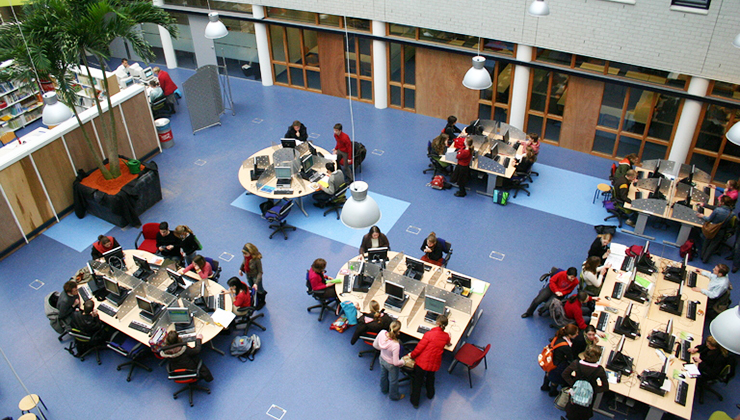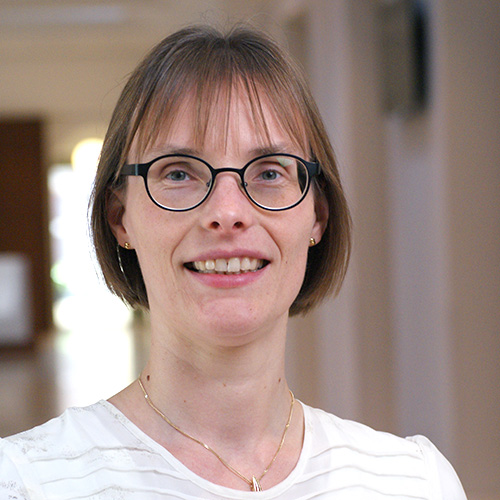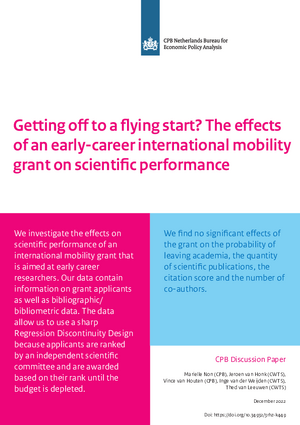Getting off to a flying start? The effects of an early-career international mobility grant on scientific performance

The research uses data from the Dutch Research Council NWO on applicants for the Rubicon grant. Because NWO has limited budgets, only the most promising applicants can be granted. This allows us to compare applicants who just were awarded with applicants who were just not awarded. We study the probability that the researcher stops publishing, the number of publications, the citation score and the number of co-authors in the five years following the grant application. We find no significant differences between awarded and non-awarded applicants.
Downloads
The results are based on a comparison of applicants who all filed a high quality proposal and have the ambition to start an (international) academic career. Therefore, they cannot be generalized to the full group of starting researchers. Moreover, our research is limited to a small number of quantifiable outcomes at individual level, which measure only part of the true outcomes of interest.
Authors

